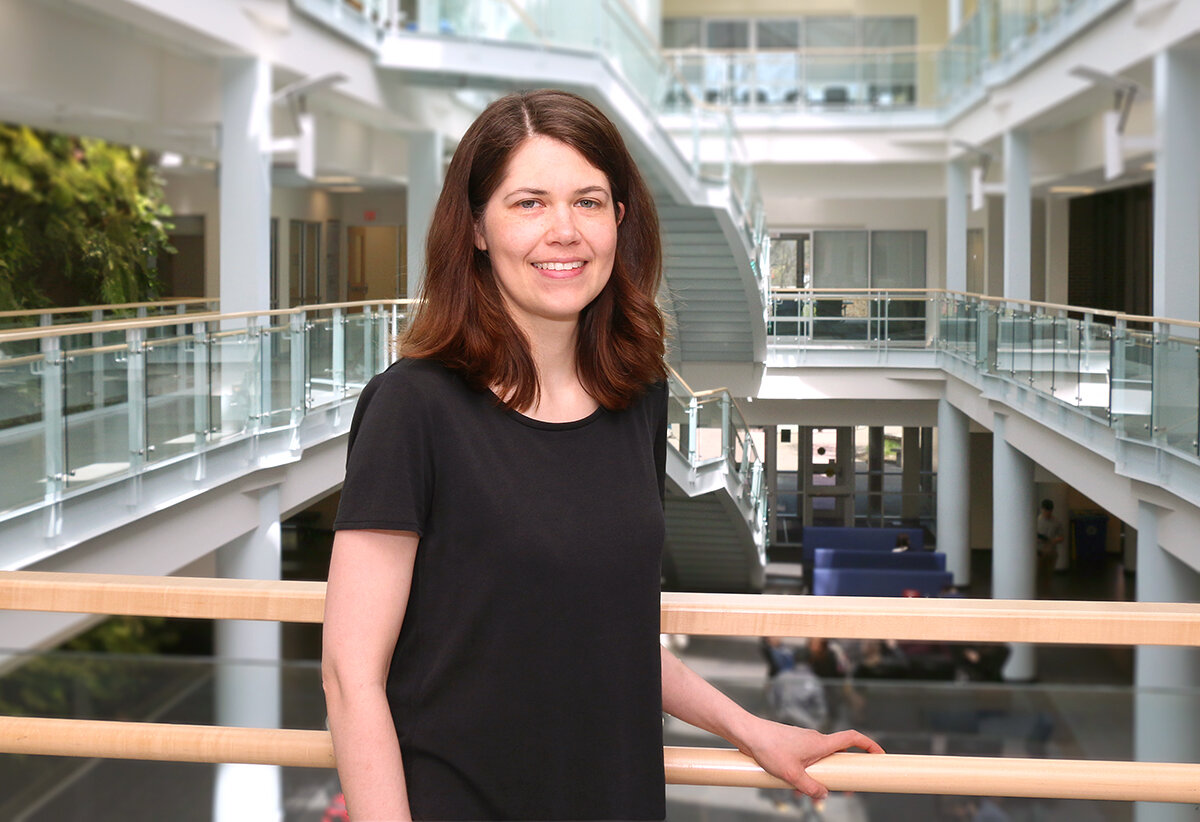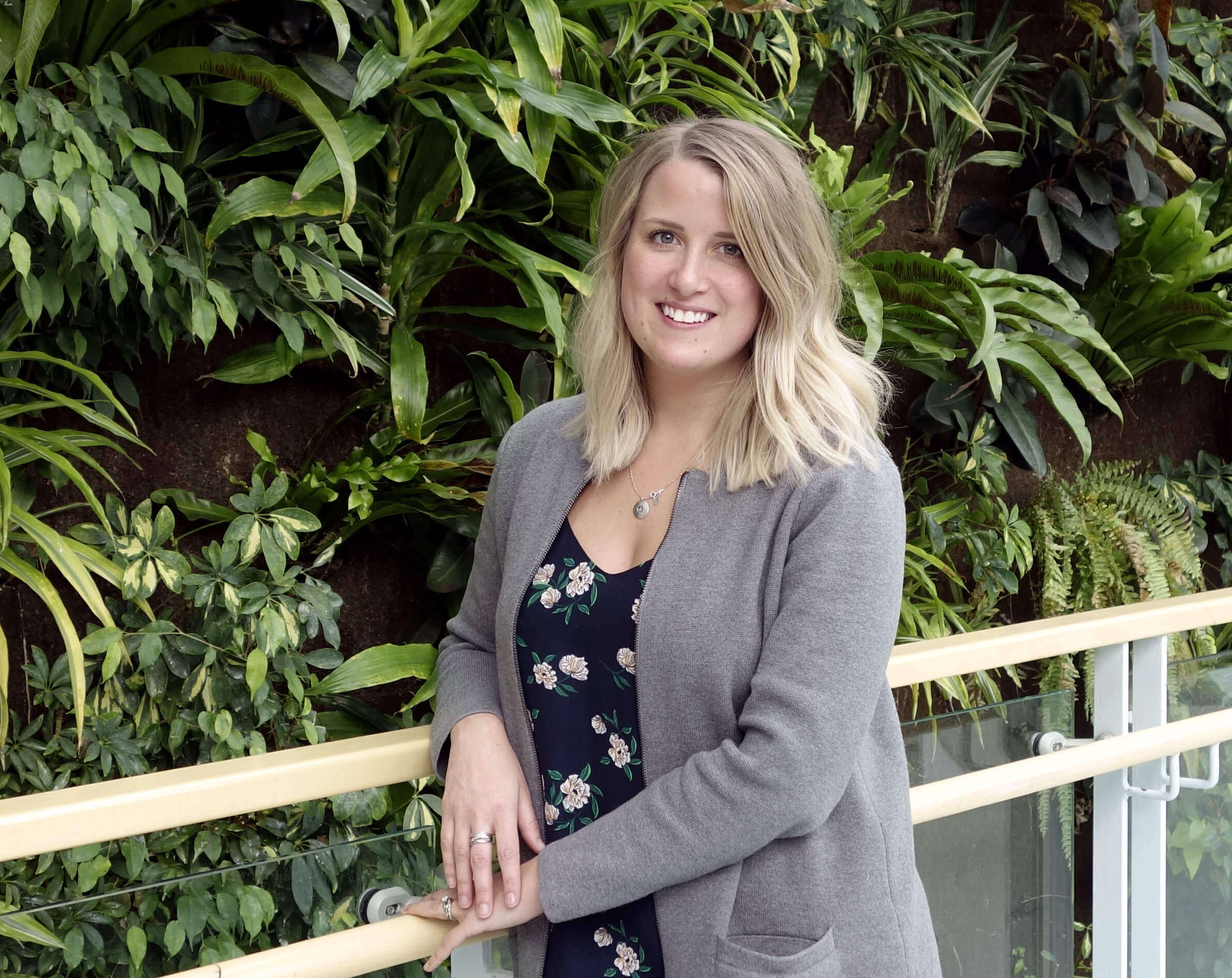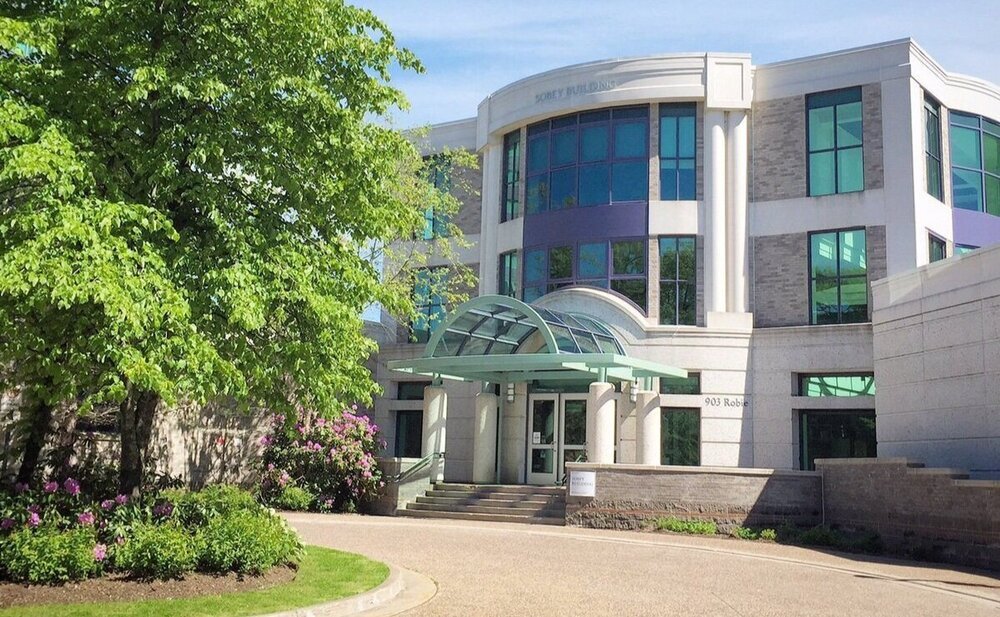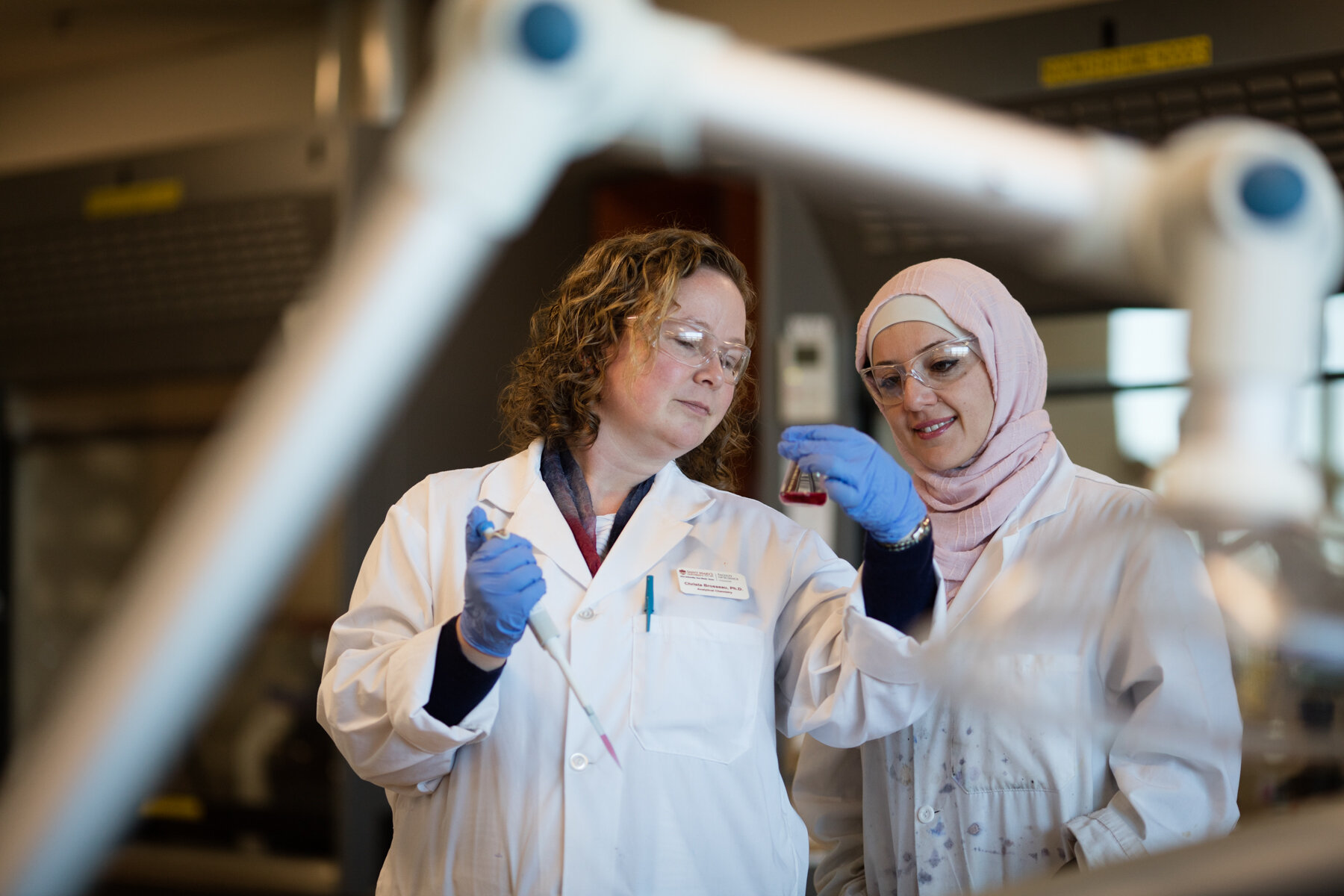Two researchers in the Faculty of Science at Saint Mary’s have received a total of $795,000 in funding from two government organizations.
Dr. Erin Adlakha and Dr. Erin Cameron will have their work, on hydrothermal ore mineral deposits and soil invertebrates, respectively, funded in equal parts by grants from Canadian Foundation for Innovation John R. Evans Leaders Fund and from Research Nova Scotia.
Dr. Erin Cameron : “Global change impacts on soil invertebrates”
A researcher in the department of Environmental Science, Dr. Cameron’s work focuses on increasing understanding of the impacts of climate change and land use on below-ground ecosystems.
Dr. Erin Cameron
“Much of our understanding of these impacts in terrestrial ecosystems is based on aboveground organisms,” explained Dr. Cameron. “In contrast, although soils support high levels of biodiversity and provide key ecosystem services such as decomposition and carbon storage, we have a limited understanding of global change effects below ground.”
Her research seeks to address this gap in our knowledge by examining how climate change, land use change, and invasive species (earthworms) affect communities and ecosystem services (e.g., carbon dioxide flux) in Nova Scotia, Canada's North, and globally, using a combination of field observations, experiments, lab analyses, and modelling.
In Nova Scotia, her work will focus on examining how human disturbances may be affecting soil biodiversity and the ecosystem services provided by soil in forests, and on examining the spread and effects of non-native earthworms. This work will increase understanding of impacts of global change on soil biodiversity and ecosystem functioning and inform effective management of climate change and invasive species in Canada.
Read more about Dr. Cameron’s recent cover story in the prestigious Science Magazine, in which she studies the global diversity and biogeography of earthworms.
Dr. Erin Adlakha: “Characterizing Alteration Footprints of Hydrothermal Ore Deposits Using Super Light Element Micro-X-Ray Fluorescence”
A faculty member and researcher in the Department of Geology at Saint Mary’s, Dr. Adlakha’s research focuses on hydrothermal ore mineral deposits, which we mine for the metals that we use in everyday life. Part of Dr. Adlakha’s research is to understand the source of fluids and metals, and identify the chemical or physical “traps” that cause ore deposition.
Dr. Erin Adlakha
“These deposits precipitate from fluids (e.g. seawater, meteoric water, magmatic fluids) that circulate through Earth’s crust along structures — faults, fractures, mineral grain boundaries —and dissolve metals from the rocks that they pass through,” explained Dr. Adlakha. “When the fluids encounter a chemical and/or physical change, a reaction may occur that triggers the precipitation of economic minerals.”
“I am also interested in the mineralogy and chemical variation of un-economic alteration minerals that form as different fluids circulate through Earth’s crust, as they guide exploration geologists to find new deposits,” she added.
This CFI award will be used to purchase a Super Light Element Micro X-Ray Fluorescence Spectrometer to characterize the complex ore and alteration systematics of different ore systems, including polymetallic Co deposits in Nova Scotia, Canada; W skarn deposits of the Canadian Cordillera; and polymetallic deposits of the Nonacho Basin, Northwest Territories.
“The results of this research will be used to develop deposit models that describe how hydrothermal ore deposits form, and provide exploration vectors for these deposits, thus contributing to the longevity and sustainability of Canada's exploration and mining programs,” said Dr. Adlakha.
About the Canadian Foundation for Innovation
The Canada Foundation for Innovation (CFI) was built on the ideals of thinking big and investing in areas that matter to Canadians. Since its creation in 1997, the CFI has ensured Canadian researchers have the tools — the cutting-edge labs, facilities and equipment — they need to push the frontiers of knowledge in all disciplines, and to contribute to the full spectrum of research — from discovery to technology development.
The John R. Evans Leaders Fund enables excellent researchers to undertake leading-edge research by providing them with the foundational research infrastructure required to be or become leaders in their field. In turn, this enables institutions to remain internationally competitive in areas of research and technology development, aligned with their strategic priorities.
Research Nova Scotia
Research Nova Scotia (RNS) is a not-for-profit corporation established to enhance research capacity and align research funding with provincial priorities. RNS invests in research that builds and translates knowledge to help ensure a sustainable and prosperous future for Nova Scotia. This support for the research community in our province helps to advance strategic growth in Nova Scotia, and contributes to innovation in the healthcare system in Nova Scotia.





















